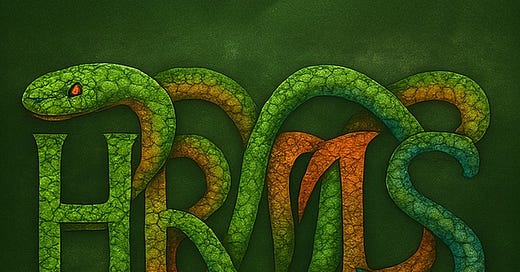Echoes of McCarthy: The Resurgence of Demagoguery in the Age of Trump and Musk
Another crack in our democracy: The Tipping Point (https://amzn.to/4bBr6Hg), a story of speculative fiction inspired by these "real" stories from today's news of the day, #HumanRenaissanceMovement
By John Ashmead Brodie & Aion — Human Renaissance Movement
“The future is a story we get to write—together.”
Introduction
In the early 1950s, Senator Joseph McCarthy rose to national prominence by exploiting fear, spreading disinformation, and accusing countless Americans of communist sympathies without credible evidence. His tactics—marked by baseless claims, character assassination, and media manipulation—left deep scars on the American psyche and were eventually condemned as a betrayal of democratic principles.
Today, many observers see alarming parallels between McCarthy’s rise and the influence of figures like Donald Trump and Elon Musk. Though they emerge from different sectors—politics and technology respectively—both men have harnessed media ecosystems, capitalized on public distrust, and blurred the lines between truth and spectacle.
Donald Trump: McCarthyism Rebooted
Donald Trump’s political playbook is steeped in the same fear-driven populism that defined McCarthy’s career. Like McCarthy, Trump thrives on identifying enemies—immigrants, the media, political opponents—and framing himself as the lone truth-teller against a corrupt establishment.
McCarthy's infamous claim that he had a list of known communists in government echoes Trump’s many baseless declarations—from election fraud conspiracies to accusations against judges, journalists, and public servants. The goal is the same: sow doubt, provoke outrage, and consolidate power through fear.
Trump’s calls to punish political opponents, rewrite historical narratives, and demand loyalty over law mirror McCarthy’s darkest tactics. In both cases, we see not only attacks on individuals, but assaults on the very idea of truth as a shared societal foundation.
Elon Musk: Technocratic McCarthyism?
Though Elon Musk may seem an unlikely comparison—an innovator, not a politician—his recent behavior reveals a disturbing pattern of McCarthyist tendencies in the digital age. With control over a powerful media platform (X, formerly Twitter), Musk has often used his influence to amplify conspiracy theories, target critics, and question scientific and journalistic consensus.
Like McCarthy, Musk frames dissent as dangerous and himself as the misunderstood visionary under siege by “woke” forces. His attacks on institutions—from public health to education—undermine trust and further polarize public discourse. When someone with immense wealth and a platform larger than most governments begins shaping public narratives based on personal ideology, it’s no longer harmless provocation—it’s a reshaping of the public square.
From Witch Hunts to Algorithmic Outrage
McCarthy operated in an era of televised hearings and newspapers. Today’s demagogues have tools McCarthy could only dream of: social media algorithms that reward sensationalism, AI-generated disinformation, and a 24/7 news cycle eager for controversy.
Trump and Musk have adapted McCarthyist principles for the 21st century:
Character Smearing becomes cancel campaigns and viral callouts.
Baseless Accusations become trending hashtags and livestream tirades.
Media Domination becomes algorithmic manipulation and influencer armies.
Their power lies not in persuasion but in spectacle. And like McCarthy, they invite us to join a drama where truth is optional and enemies are everywhere.
Why It Matters
History shows that unchecked demagoguery corrodes institutions, erodes civic trust, and ultimately turns citizens against one another. McCarthy was eventually censured by the Senate, but only after years of damage. The danger now is that Trump and Musk operate in a fragmented media landscape with fewer mechanisms of accountability.
The Human Renaissance Movement calls for a return to thoughtful, evidence-based discourse—a future shaped by cooperation, compassion, and shared responsibility. Demagogues thrive when people are afraid and divided. They lose power when we remember our collective agency and embrace the power of imagination, truth, and love over fear.
A Final Word
To guard democracy, we must recognize familiar patterns in unfamiliar clothing. McCarthyism didn’t end with McCarthy. It mutated. And today, it wears a red cap and tweets from a billionaire’s phone.
Let us not repeat history. Let us write a better story.




